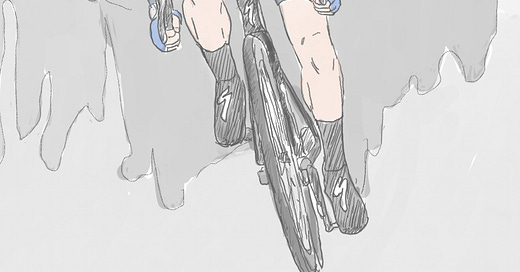Retirement is rarely completely voluntary, instead frequently summoned by injury or illness, a team’s financial mismanagement, or merely the losing battle with age. But there lies a mental block also, an unwillingness among many professionals to continually sacrifice their lives and bodies in pursuit of an elite athletic standard that is continually hel…
Keep reading with a 7-day free trial
Subscribe to derailleur to keep reading this post and get 7 days of free access to the full post archives.





